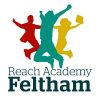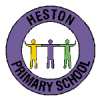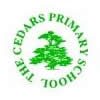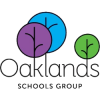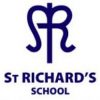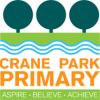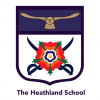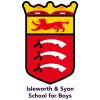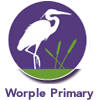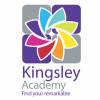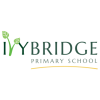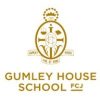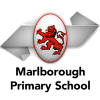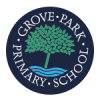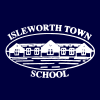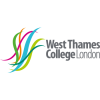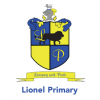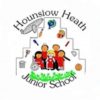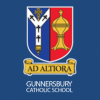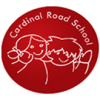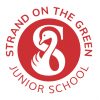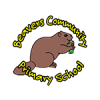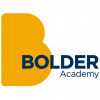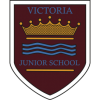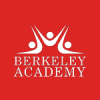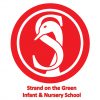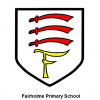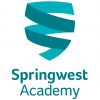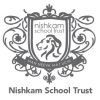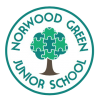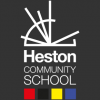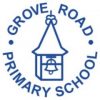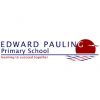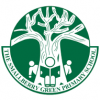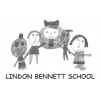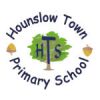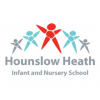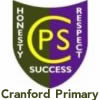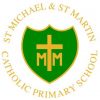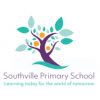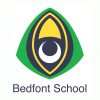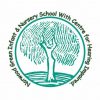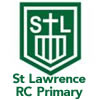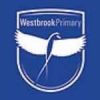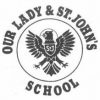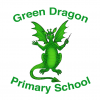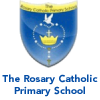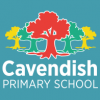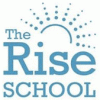Dear Subject Leader / Teacher / Teaching Assistant,
Welcome to the HEP Primary History home page. On this page, you will find a range of resources and information to support you if you are the subject leader for History at your school and/or a classroom teacher / teaching assistant looking for advice and guidance to support your lesson planning.
The national curriculum for history aims to ensure that all pupils:
- know and understand the history of these islands as a coherent, chronological narrative, from the earliest times to the present day; how people’s lives have shaped this nation and how Britain has influenced and been influenced by the wider world
- know and understand significant aspects of the history of the wider world: the nature of ancient civilisations; the expansion and dissolution of empires; characteristic features of past non-European societies; achievements and follies of mankind
- gain and deploy a historically grounded understanding of abstract terms such as ‘empire’, ‘civilisation’, ‘parliament’ and ‘peasantry’
- understand historical concepts such as continuity and change, cause and consequence, similarity, difference and significance, and use them to make connections, draw contrasts, analyse trends, frame historically valid questions and create their own structured accounts, including written narratives and analyses
- understand the methods of historical enquiry, including how evidence is used rigorously to make historical claims, and discern how and why contrasting arguments and interpretations of the past have been constructed
- gain historical perspective by placing their growing knowledge into different contexts, understanding the connections between local, regional, national and international history; between cultural, economic, military, political, religious and social history; and between short- and long-term timescales
Subject Self-evaluation template
History Subject Leader Workbook September 2024
History Subject Leaders Resource File September 2024
July 2021: Ofsted Research Review Series: History
The Historical Association (HA) below, provides high quality resources to support the teaching and learning of these six aims.
Whether you are a subject leader / class teacher / teaching assistant, without doubt the best resource for guidance, resources / activities is the Historical Association (HA). The HA is the professional subject association to support the leadership / teaching & learning of history in primary & secondary schools.
Membership of the HA costs (School: £72 / annum – Individual: £36.50 / annum)
For this you / your school will receive:
a copy of Primary History (3 times / year). Every issue:
- has a themed focus
- contains practical, informative, inspiring and thought-provoking articles to support history teaching and learning in the primary classroom each term
- is available in print and online format
- contains articles supplemented with online extras such as worksheets, further ideas and PowerPoint presentations.
Here is an example of articles from a recent edition (Autumn 2019)
- Developing early history skills and understanding through the EYFS
- Teaching sensitive subjects: slavery and Britain’s role in the trade
- The Elizabeth cake
- Turning Technology: making life better in Iron Age Britain
- ‘Miss, did the Romans build pyramids?’
- Teaching crime and punishment as a post-1066 theme
- History in the news
- The Phoney War: Breadth and depth in teaching and learning about WWII
- Subject leaders’ site: the importance of subject knowledge
- Making the most of a census
- One of my favourite history places
In addition you will also receive:
- Access to schemes of work
Membership includes access to over 30 expertly-produced schemes of work covering all curriculum units. - Access to digital teaching resources
From guidance on assessment and progression, an archive of articles fromPrimary History, to resources for teaching causation, significance, change and continuity, chronological understanding, plus much more. Why not view some of oursample resources? Please note that our subject leader guides are only available to corporate primary members. - Affordable professional development
Enjoy free or heavily discounted access to high quality CPD including regional history forums, specialist conferences, online webinars and the HA annual conference. (Bristol Marriott Hotel City Centre, Friday 15–Saturday 16 May 2020). - Subject knowledge resources
Over 350 history podcasts are designed to improve your subject knowledge, from ancient to modern history, through the voices of expert historians. Alongside free access to talks at your local HA branch, you can harness resources to develop your knowledge and deliver a robust, cohesive and inclusive curriculum. - Tailored support for career progression
From access to CPD to the HA Chartered Teacher designation, membership forges a development path from initial teacher training, NQT and early career RQT, through to subject leadership and mentorship. - All the latest updates
Through regular e-newsletters and members' magazineHA News. - The guidance of the HA community
Gain unparalleled access to a rich subject community of thousands of history practitioners, sharing best practice and collective knowledge through our physical and digital networks.
 The National Archives in Kew (https://www.nationalarchives.gov.uk/education/) is ‘the’ website to visit for resources which support the teaching and learning of all aspects of British History. In addition to holding the UK Government’s official archives, census information, etc, they offer a range of professional development programmes which provide teachers with access to their unique collections and will support you in developing new source-based activities.
The National Archives in Kew (https://www.nationalarchives.gov.uk/education/) is ‘the’ website to visit for resources which support the teaching and learning of all aspects of British History. In addition to holding the UK Government’s official archives, census information, etc, they offer a range of professional development programmes which provide teachers with access to their unique collections and will support you in developing new source-based activities.
- know and understand the history of these islands as a coherent, chronological narrative, from the earliest times to the present day: how people’s lives have shaped this nation and how Britain has influenced and been influenced by the wider world.
- Chronology: developing a coherent knowledge and understanding of Britain's past and of the wider world
https://www.history.org.uk/publications/resource/7479/chronology-developing-a-coherent-knowledge - Chronology – a CPD unit
https://www.history.org.uk/primary/module/1743/chronology - Constructivist chronology and Horrible Histories
https://www.history.org.uk/primary/resource/6853/constructivist-chronology-and-horrible-histories
- know and understand significant aspects of the history of the wider world: the nature of ancient civilisations; the expansion and dissolution of empires; characteristic features of past non-European societies; achievements and follies of mankind.
- British Museum: www.britishmuseum.org
In addition to offering a range of workshops for children aged 3-6 and 7-11, the Museum also has resources which support pupils’ learning around topics such as: Ancient Britain; Ancient Egypt; Ancient Greece; Ancient Rome; and Benin. - History Association: https://www.history.org.uk/primary/categories/content
Resources split up so that you can tackle every area of the curriculum - Stone Age to the Iron Age, Ancient Civilisations, Roman Britain, Anglo-Saxons to the Normans, Local Study, World Study, Individuals and Events, Living Memory, Beyond 1066, Global Learning Programme, Assessment, Lessons & Exemplars.
- gain and deploy a historically grounded understanding of abstract terms such as ‘empire’, ‘civilisation’, ‘parliament’ and ‘peasantry’.
- History Association:
https://www.history.org.uk/primary/categories/curriculum-issues
Curriculum resources to enable you to plan for - Interpretations, Change & Continuity, Causation, Significance, Chronological Understanding, Inclusion, Using Sources, Similarity & Difference, Diversity, Big Picture, Controversial Issues, Literacy.
- understand historical concepts such as continuity and change, cause and consequence, similarity, difference and significance, and use them to make connections, draw contrasts, analyse trends, frame historically valid questions and create their own structured accounts, including written narratives and analyses.
- History Association:
https://www.history.org.uk/primary/categories/curriculum-issues
Curriculum resources to enable you to plan for - Interpretations, Change & Continuity, Causation, Significance, Chronological Understanding, Inclusion, Using Sources, Similarity & Difference, Diversity, Big Picture, Controversial Issues, Literacy.
- understand the methods of historical enquiry, including how evidence is used rigorously to make historical claims, and discern how and why contrasting arguments and interpretations of the past have been constructed.
- For an overview of all resources to support Historical Enquiry see:
https://www.history.org.uk/primary/categories/fs-key-stage-1
https://www.history.org.uk/primary/categories/key-stage-2 - How to build an effective historical enquiry at key stages 1 and 2
https://www.history.org.uk/primary/categories/677/resource/9016/ha-enquiry-toolkit - Using stories to support history in the EYFS
https://www.history.org.uk/primary/categories/728/resource/9760/using-stories-to-support-history-in-the-eyfs
- gain historical perspective by placing their growing knowledge into different contexts, understanding the connections between local, regional, national and international history; between cultural, economic, military, political, religious and social history; and between short- and long-term timescales.
- Cross-curricular project on a famous person
https://www.history.org.uk/primary/categories/676/resource/2984/cross-curricular-project-on-a-famous-person - Emerging historians in the outdoors
https://www.history.org.uk/primary/categories/676/resource/9640/emerging-historians-in-the-outdoors - History outside the classroom at Key Stage 1
https://www.history.org.uk/primary/categories/676/resource/9267/history-outside-the-classroom-at-key-stage-1
Brentford - London Museum of Water and Steam
https://waterandsteam.org.uk/learning/
CPD: Using museums, libraries and art galleries
https://www.history.org.uk/primary/categories/676/resource/5890/cpd-using-museums-libraries-and-art-galleries
Chiswick House
http://chiswickhouseandgardens.org.uk
Gunnersbury Park
https://www.hounslow.gov.uk/info/20168/parks_and_open_spaces/1190/gunnersbury_park
Hounslow Gunpowder Mills
http://www.twickenham-museum.org.uk/detail.php?aid=188&cid=2&ctid=2
Hounslow Local Studies Collection, Treaty Centre Library
https://www.hounslow.gov.uk/info/20136/other_library_services/1692/local_history_and_archives/2
Guildhall Art Gallery
https://www.cityoflondon.gov.uk/things-to-do/visit-the-city/attractions/guildhall-galleries/guildhall-art-gallery/Pages/default.aspx
London’s Roman Amphitheatre
https://www.cityoflondon.gov.uk/things-to-do/visit-the-city/attractions/guildhall-galleries/Pages/londons-roman-amphitheatre.aspx
Marble Hill House
https://www.english-heritage.org.uk/visit/places/marble-hill-house/
National Archives Kew
https://www.nationalarchives.gov.uk/education/
Museum of London
https://www.museumoflondon.org.uk/schools/learning-resources
National Portrait Gallery
https://www.npg.org.uk/learning/schools-and-colleges/primary-schools/
Orleans House
https://www.orleanshousegallery.org
Osterley House
https://www.nationaltrust.org.uk/osterley-park-and-house/features/learning-and-schools-at-osterley
Temple of Mithras
https://www.londonmithraeum.com/temple-of-mithras/?gclid=EAIaIQobChMI14nbydTi5wIVGODtCh2afwo8EAAYASAAEgIpCfD_BwE
Thames Explorer Trust
http://thames-explorer.org.uk
If you have used or know of any good resources to share with other subject leaders or teachers in Hounslow, please email them to Nikola Standing – n.standing@hounsloweducationpartnership.co.uk







